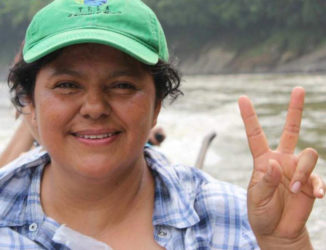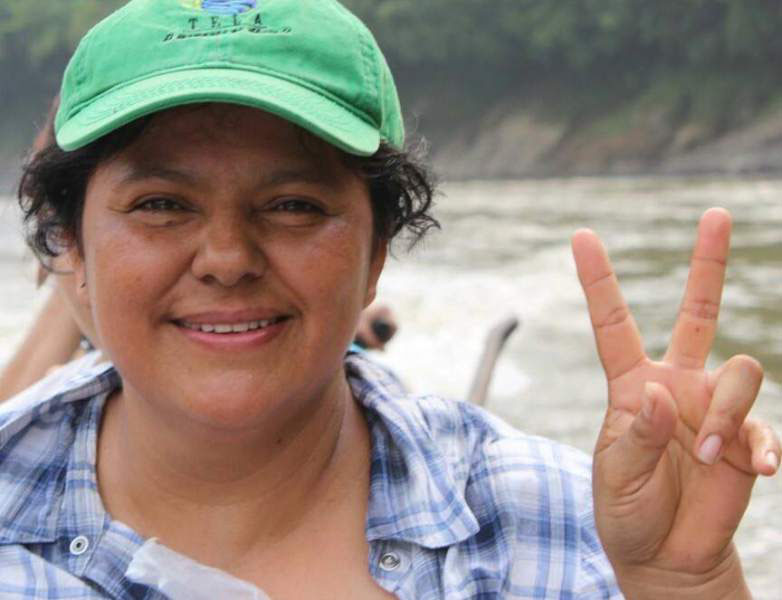TEGUCIGALPA, (Thomson Reuters Foundation) – The killing of land rights campaigner Berta Caceres has unleashed a wave of activism in support of women and the environment, said friends, colleagues, and family commemorating the first anniversary of the Honduran’s death.

The indigenous activist has become a figurehead for protests in her home country since she was shot and killed on March 3, 2016, after receiving death threats over her opposition to a hydroelectric dam project.
Speaking on the anniversary of her death, Caceres’s mother, Austra Flores, said her daughter’s “horrendous” murder had started a legacy of resistance against enivonmentally destructive developments and violence toward activists.
“The assassins were wrong when they thought they killed her, because she continues to live through millions of young people. She lives from beyond,” Flores told the Thomson Reuters Foundation in an interview at her home.
Demonstrations demanding justice for Caceres have taken place in the Honduran capital, Tegucigalpa, over the past year and banners bearing her image have been raised at protests for women’s, indigenous, and land rights across Latin America.
On Wednesday this week, hundreds marched on Honduras’ Supreme Court, amid chants of “Berta is not dead”, to submit a legal challenge against the hydroelectric project she had fought to prevent.
Caceres won the prestigious Goldman Environmental Prize in 2015 for leading opposition to the $50 million Agua Zarca dam that threatened to displace hundreds of indigenous people.
Speaking to demonstrators, Caceres’ daughter, also called Berta, said her mother’s death had been an inestimable loss for all the people of Honduras.
Six people, including an employee of the hydroelectric company and Honduran military personnel, have been arrested since the 43-year-old teacher was killed by two men at her home in La Esperanza, 112 miles (180 kms) west of Tegucigalpa.
But protestors on the march said they were angry that authorities had failed to investigate business and government figures they accuse of orchestrating the crime.
Honduras is the deadliest place on earth for environmental activism, according to a report in January by environmental watchdog Global Witness, with at least 101 activists murdered since 2010.
The Central American country of 8.5 million people which is rich in forests and valuable minerals, has seen a surge in large resource projects including dams, mines and plantations, and this growth is linked to activists’ deaths, campaigners said.
The Global Witness report into attacks against Honduran land rights defenders, including Caceres, found state authorities routinely failed to bring perpetrators to justice.
Miriam Miranda, leader of indigenous group the Black Fraternal Organization of Honduras said in death, Caceres had “multiplied” by emboldening those fighting impunity.
“People all around the world are fighting now for justice, to make sure that this killing of women who defend mother earth, is not repeated,” Miranda said.
Caceres’ mother said she would continue the fight.
“I want to see change in this country, even if it’s the last thing I do before I die,” she said.

